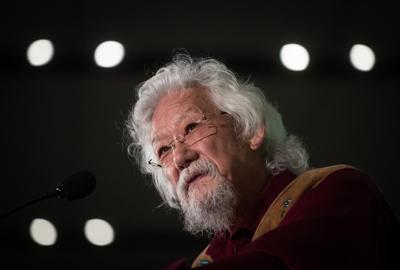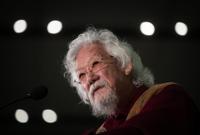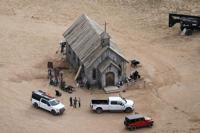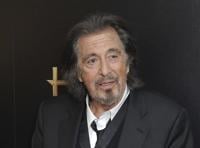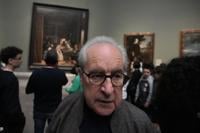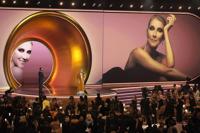VANCOUVER - Eco-activist David Suzuki says it's time for him to pass the mantle to a new host of CBC’s “The Nature of Things.”
The 86-year-old environmentalist and science broadcaster said Monday that he has been gradually been shifting away from actively developing the program, taking on more of a narration role instead.
He said "it's long past time" for others to offer a different perspective.
"I have faith that younger people are going to come along, that the battle will get more intense because more is at risk," Suzuki said Monday by phone from his home in Vancouver.
"I've lived out my life. This is an issue that every new generation is going to have to pay for and it's going to be more serious, but I don't believe one person is so important that my leaving matters a damn.
"There are lots of people out there, and the voices are going to get stronger and stronger."
Suzuki announced Sunday in an interview with Ian Hanomansing on CBC’s “The ������ϲʹ�������” that he will retire from his long-running post next spring. Suzuki’s final episode will cap a 62nd season that launches Jan. 6, 2023 on CBC TV and CBC Gem.
CBC said in a press release that its plans after Suzuki leaves will be confirmed in the coming weeks.
Suzuki began hosting the series exactly 43 years ago on Oct. 24, 1979 and his dedication has never waned.
He said paramount issues for him today include the loss of biodiversity, deforestation, pollution and what he calls a "species extinction crisis."
But getting the message across has been difficult, he said when asked about recent headline-grabbing stunts by some eco-warriors who have attacked artwork in Europe.
Two activists threw mashed potatoes on a glass-covered painting by French impressionist Claude Monet at a German museum Sunday, and earlier this month, activists in London threw cans of tomato soup on a painting by Vincent van Gogh.
"People are going to become more and more desperate. I don't think that's an invalid way. I thought it was a fantastic way of exhibiting, and it didn't harm the art. It was making a point," Suzuki says of the two incidents.
"They were both covered in glass. They didn't harm the art. But they got more outrage and response than when the oceans are covered in oil. You know, when we're spraying all these chemicals into the air and water. Shake your head people — that stunt exposed the ludicrousness of the way that we put emphasis on news stories, or what passes as news."
Suzuki himself seized on a media opportunity earlier this month when he unexpectedly came across an outdoor press conference hosted by federal Tourism Minister Randy Boissonnault in Vancouver.
Suzuki said he was about to catch a float plane on Oct. 14 to visit his daughter in Victoria when he saw a small crowd gather for a funding announcement meant to boost tourism in the Lower Mainland.
"It just made me madder and madder when behind him, which should have been the mountains, you couldn't see anything because of smoke. The burning season is now extending into October," Suzuki said in an interview last week.
When the floor was turned to reporters for questions, Suzuki said no one asked any. So he stepped forward to accuse the federal government of failing to take climate change seriously.
"It was a golden opportunity that just fell into my lap. And it made me think, you know, for those of us that care about this issue, we shouldn't allow any of these public announcements to go unchallenged," he said.
Suzuki joined the CBC in 1971 with the TV series, "Suzuki on Science." In 1974, he developed and hosted the long-running popular radio program "Quirks and Quarks," and several more TV specials followed.
His position as one of Canada's most popular personalities was forged in 1979 when he took over as host of "The Nature of Things." As testament to his broad appeal, the science magazine was renamed "The Nature of Things with David Suzuki" and doubled in length from its original half-hour format.
CBC executive vice president Barbara Williams said Suzuki leaves an “indelible legacy.”
“David has made science more accessible to countless viewers in Canada and around the world, finding new ways to demystify our complex world and illustrate how the future of humanity and the natural world cannot be separated — long before climate change became a hot topic," Williams said in the release.
— With files from Cassandra Szklarski in Toronto and Dirk Meissner in Victoria
This report by ������ϲʹ������� was first published Oct. 24, 2022.

